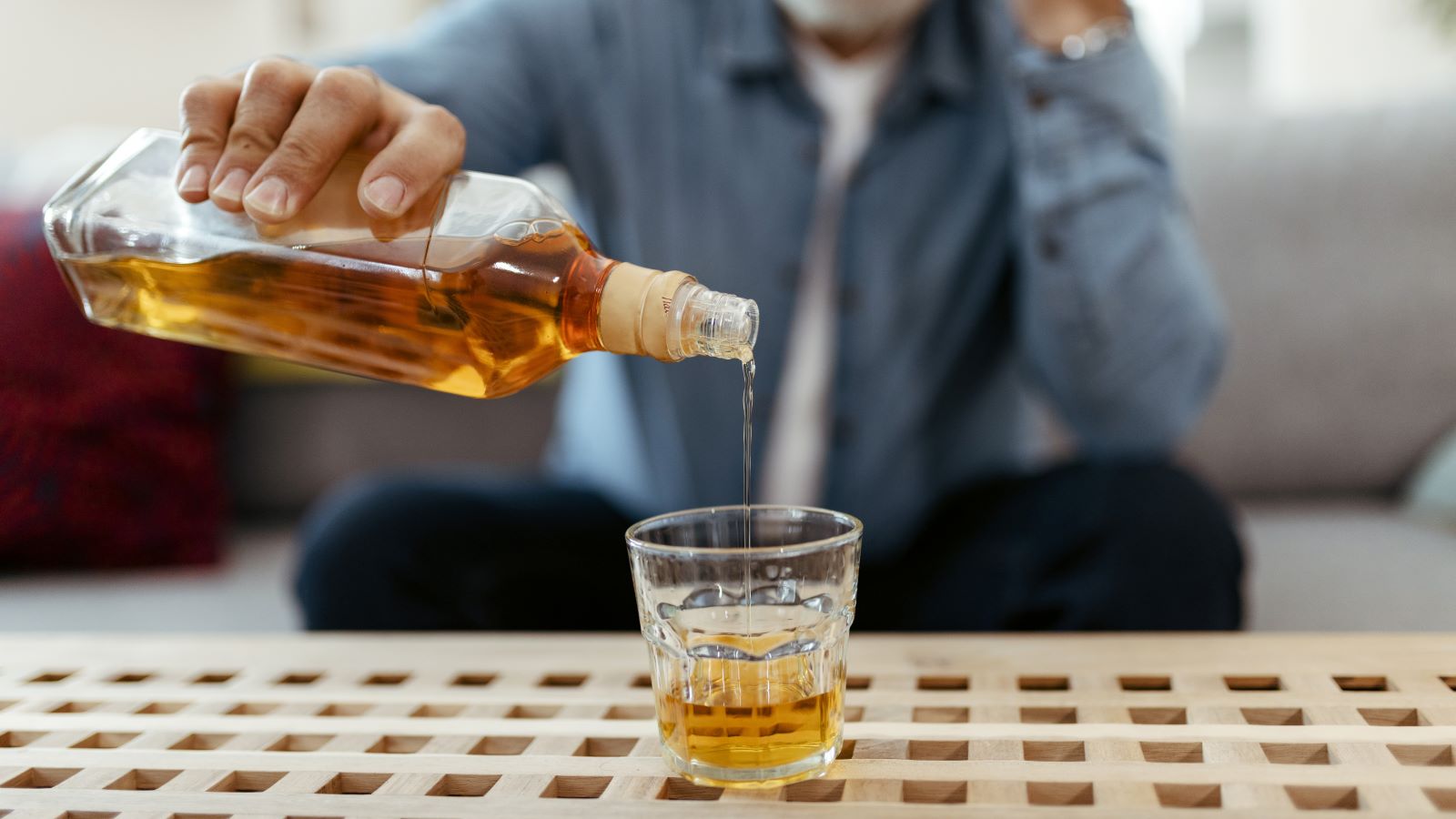<< Back
6 Signs You Might Be Drinking Too Much

July 29, 2025
At home, you take cocktail hour literally. At weddings, you’re the first one to the bar. And at the local liquor store, they know you by name.
But really, in a society where alcohol is everywhere, how alarming is this? When does a casual relationship with alcohol cross the line into drinking too much?
We asked J. Craig Allen, MD, vice president of addiction services for Hartford HealthCare and medical director of the Rushford Center, part of its Behavioral Health Network.
Isn’t any amount of alcohol too much?
Elephant in the room: After decades of “it’s fine in moderation,” the latest research shows that alcohol is simply bad for our health. Period. So by this measure, if you’re drinking at all, it’s too much.
Of course, our actual lifestyle choices tend to more complicated. Often, the key is to strike a healthy enough balance.
What does this mean for alcohol?
“If you choose to drink alcohol, it’s important to check in with yourself,” says Dr. Allen. “If you’re not sure whether you need to cut back, start by assessing your habits. Review how much you’re drinking, and what your current relationship is with alcohol.”
> Want more health news? Text StartHere to 85209 to sign up for text alerts
6 signs you might be drinking too much
First, do a quick audit.
“Count how many drinks you have per day or week,” says Dr. Allen. “Compare that to the National Institute of Health recommendation: two drinks or less per day for men, and one drink or less for women.”
How do you measure up? This is important to keep in mind.
Then, it’s time for some soul-searching.
Ask yourself, do you ever:
- Drink more than you plan to?
- Forget what happened or “black out” when drinking?
- Feel sick or hungover the day after drinking?
- Engage in risky behaviors while drinking, like driving when buzzed?
- Hear from friends or family that they’re concern about your drinking?
If you answer yes to any of the above, proceed with caution.
OK, you’ve decided to drink less. But how?
“If your main concern is social drinking, remember that there are many rewarding social activities that don’t focus on alcohol. Prioritize those,” says Dr. Allen. (Pickleball, anyone?)
When that’s not possible, and you suspect an event will involve alcohol, come up with a plan. Set a limit for how many alcoholic drinks you’ll have. To help you stick to it, bring lower- or no-alcohol options to swap in between rounds. If you choose not to drink alcohol, practice how you’ll respond to questions or awkward peer pressure. A few of Dr. Allen’s go-tos: “I don’t need the extra calories”; “It causes sleep problems for me”; “I’m cutting down.”
Finally, if you’re just generally having a hard time cutting back, remember that many people struggle with alcohol at some point in their life.
“This is not a character flaw. It’s a common medical condition, with proven solutions,” says Dr. Allen.
Ask your primary care provider for help connecting with treatments like alcohol counseling or medications. You can also reach out to your insurance plan, local health department or employee assistance program for information and support.
> Related: 6 Signs Your Drinking Might Be More Than Just a Habit
One last reminder: Stay vigilant.
In Greek mythology, the “siren” uses her charms to lure humans to their doom. Alcohol can have a similar effect.
“I call alcohol ‘the siren of the sip,’” says Dr. Allen. “The cultural role that alcohol plays in our society, plus the neurophysiologic changes it causes as drinking progresses, can make it hard to see a problem. Someone may be completely unaware as they cross the lines from recreational to risky to full-blown alcohol use disorder.”
The takeaway? Learn the warning signs above. Watch for them. And if you notice something’s off, ask for help.